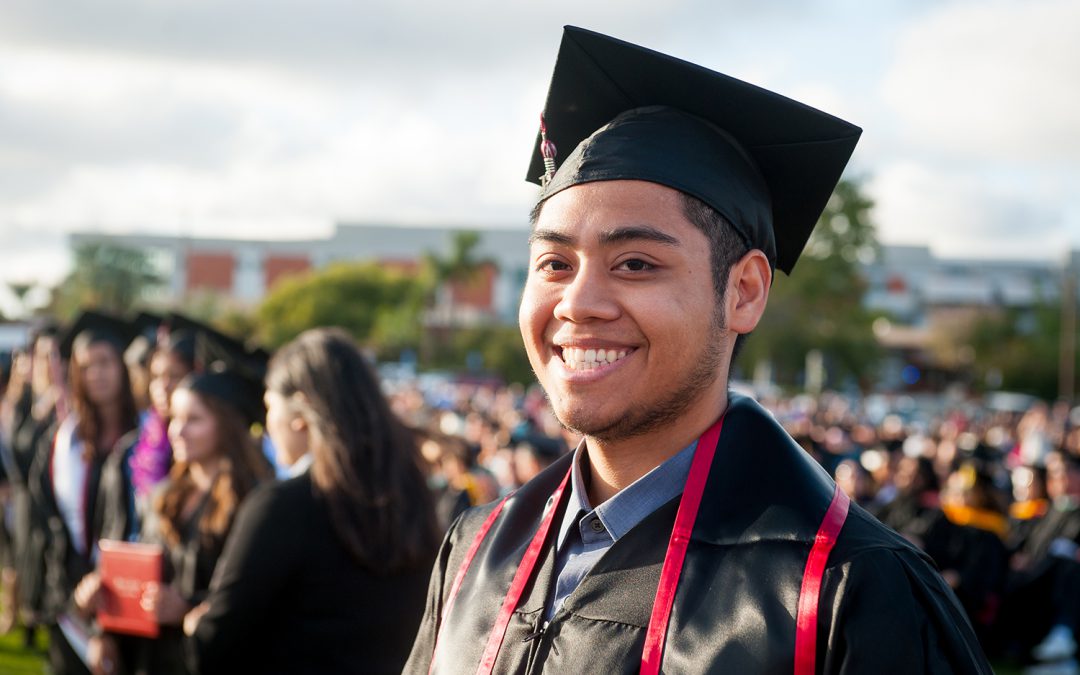The update replaces the previous Multicultural Studies requirement with courses focused on race and ethnicity under Chicano Studies, Africana Studies and American Indian Studies.
SAN MARCOS — Next fall, when students resume their path toward an Associate of Arts degree at Palomar College, they will face a new requirement that educators say represents a major step toward aligning Palomar’s standards with state universities, while furthering Diversity, Equity & Inclusion.
The college has maintained a Multicultural Studies (MS) requirement for more than 20 years. As of Fall 2022, it will be replaced by an Ethnic Studies (ES) requirement, in alignment with new state standards.
The change follows the statewide implementation of CA Assembly Bill 1460, which established an Ethnic Studies graduation requirement for students in the California State University system who will graduate in 2024–25.
“This is a bold and necessary step forward for Palomar College, which advances our commitment to equity while helping students prepare for undergraduate programs across the state,” said Palomar’s Superintendent/President, Dr. Star Rivera-Lacey.
Dr. Jack Kahn, the Assistant Superintendent/Vice President of Instruction, said that no classes are being eliminated under the change; rather, the graduation requirement is being shifted to a smaller, more intensive cluster of courses.
“Frankly, I think all courses should be taught from a multicultural perspective,” said Dr. Kahn. “For example, we have wonderful courses that currently satisfy the Multicultural Studies requirement in Anthropology, Cinema, Communications, Dance, History and Religious Studies, among many other disciplines. This change (to Ethnic Studies) emphasizes the importance of honoring the specific expertise and training of our ethnic studies faculty and their own lived experiences.”
As of next fall, Dr. Kahn explained, the approved courses will be more rigorously focused on the core subject matter. The text of AB 1460 defines Ethnic Studies as “an interdisciplinary and comparative study of race and ethnicity with special focus on four historically defined racialized core groups: Native Americans, African Americans, Asian Americans, and Latina and Latino Americans.”
Patti Dixon, a Professor of American Indian Studies at Palomar and a Luiseño tribal leader from Pauma Valley, said that the long-standing Multicultural Studies courses served their purpose. But the switch to Ethnic Studies will help provide students with a deeper understanding of cultural and ethnic subjects, both in history and the present day.
“The intent is to expose the deficits of our American system, but at the same time, to learn and heal and form a collaborative approach to being the American people,” said Dixon. “Ethnic Studies is going to have a dramatic impact in certain areas, and ideally it will help us see each other more clearly as human beings, and treat each other with respect.”
A New Approach to Ethnic and Cultural Education
“This is an important change for the college to make,” said Rodolfo Jacobo, Associate Professor and Chair of the Ethnic Studies Department at Palomar. “If the idea is to help our students understand the experiences of people of color, then it’s best for them to be enrolled in classes that are dealing with those experiences every day of the semester.”
In the Ethnic Studies disciplines, he said, “Not only are the faculty trained to teach in this area, but many of us have had those experiences ourselves.”
AB 1460, which was approved by the California State Legislature in August 2020, requires that all students enrolled at the 23 CSU campuses take a 3-unit Ethnic Studies course in order to graduate. The bill also provided specific outcomes that approved courses are required to deliver, and limited the academic disciplines that may teach the newly required classes.
Wendy Nelson, Associate Professor of Media Studies and Co-Chair of the Curriculum Committee, said the change at Palomar will help prepare transfer students by aligning general education requirements with those that they will encounter at university.
Nelson also emphasized that the update involves far more than a new title.
“There are very specific core competencies necessary in order to meet the ES requirement,” she said. “Our faculty spent several months having conversations and really rethinking what we’re teaching in these courses, and how we’re going to meet these core competencies.”
The previously required Multicultural Studies courses, meanwhile, “are not going away, because they still meet the requirements of different programs within the college.”
Ben Mudgett, Palomar’s Articulation Officer and an Associate Professor of Business, said that there will now be nine classes for students to choose from, under the three disciplines of Chicano Studies, Africana Studies and American Indian Studies.
“We were the only community college in the state to get 100 percent of our Ethnic Studies proposals approved by the CSU,” Mudgett said. “The faculty had brave conversations about what this means for our departments and courses. We all had to put aside our biases and really listen to our Ethnic Studies faculty and what our students need.
“It was determined that we should make these bold general education changes so that every student getting their associate degree will be better prepared when they go on to a state university,” he added.
The change was unanimously approved by the Curriculum Committee on December 1, 2021, followed by final approval by the Faculty Senate on December 6.
Moving Forward with Diversity, Equity & Inclusion
Campus leaders say replacing the Multicultural Studies requirement with an Ethnic Studies requirement is a more significant shift than it may seem, revealing a profound commitment to Diversity, Equity & Inclusion (DEI).
“The goal is to give our students an unfiltered lens to see the world we live in, appreciate our diversity, and heal the wrongs that have happened in the past,” said Dixon.
One anticipated effect of the change will be a decreased demand for classes that previously fulfilled the Multicultural Studies requirement, and the discussion involved many faculty members who will be affected.
The result, according to those involved in the process, has been a resounding vote of support for DEI at Palomar.
“Everyone who has a course that meets the Multicultural Studies requirement was aware that there could be some effects on their enrollments in those classes,” said Nelson. “Our faculty understood that. However, we didn’t get that much pushback. I think everyone knew it was time to make this change. We’re at a place in our country where we need this, and our students will benefit from it.”
Dr. Kahn added, “I was so impressed with our faculty in this decision. It’s one thing to have discussions about DEI, but this is one area where it will really have an impact. This is a significant change that shows people are willing to make sacrifices in the spirit of equity.”
And Jacobo, who has dedicated decades of his career to teaching and advocating for more equitable instruction at Palomar, said he is encouraged by the move: “The main focus is the students—how are we preparing them to live and work in an increasingly diverse community and world? That’s the best news of all of this, it’s for the students’ sake.”

